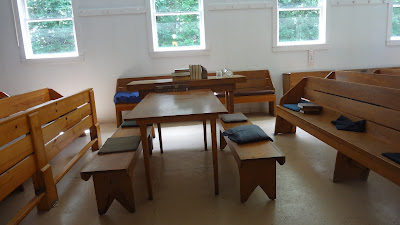The first battles of the Revolutionary War were fought at Lexington and Concord, Massachusetts, in April 1775. In June, the Second Continental Congress voted to form a Continental Army. Lancaster County, Pa., responded by sending a fair share of men to fight. But at the same time, Lancaster County officials realized they had a large number of Mennonite, Amish, Quaker, and Moravian residents whose beliefs would not allow them to participate in war.
On July 11, 1775, this broadside was published in Lancaster, Pa., urging those in such denominations to contribute financially in lieu of weapons and soldiers. (Broadsides were printed posters hung in public places or read aloud to get the word out in the days before mass media.) The broadside basically goads these conscientious objectors to give money, strongly implying that their beliefs might be seen as a cover for stinginess rather than a dearly-held principle.
"The Committee do therefore join in earnestly
recommending it to such Denominations of People, in this County, whose
religious Scruples forbid them to associate or bear Arms, that they contribute
towards the necessary and unavoidable Expences of the Public, in such
Proportion as may leave no Room, with any, to suspect that they would ungenerously
avail themselves of the Indulgence granted them; or, under a Pretence of
Conscience and religious Scruples, keep their Money in their Pockets, and
thereby throw those Burthens upon a Part of the Community, which, in a Cause
that affects all, should be borne by all."
At least 200 copies of this broadside were printed, some in English, some in German. The Library of Congress has a fragment of the German version. This is the only surviving intact copy and the only known English copy.
This broadside has been on display at the Lititz Moravian Church museum (in Lititz, Pa.) since at least the 1970s. The paper has probably been kept at the church ever since the minister received it from the committee in 1775. He would have read the German translation aloud to his congregation and passed it around. Since the German-speaking congregants had little use for the English version, the minister probably just filed it away and forgot about it.
In 2011, the real importance of this document was discovered. No other copy of this 1775 broadside exists in any other collection in the world. It is unique, the only copy to have survived. Thanks to the extensive archives of the Moravians who never threw anything away!













